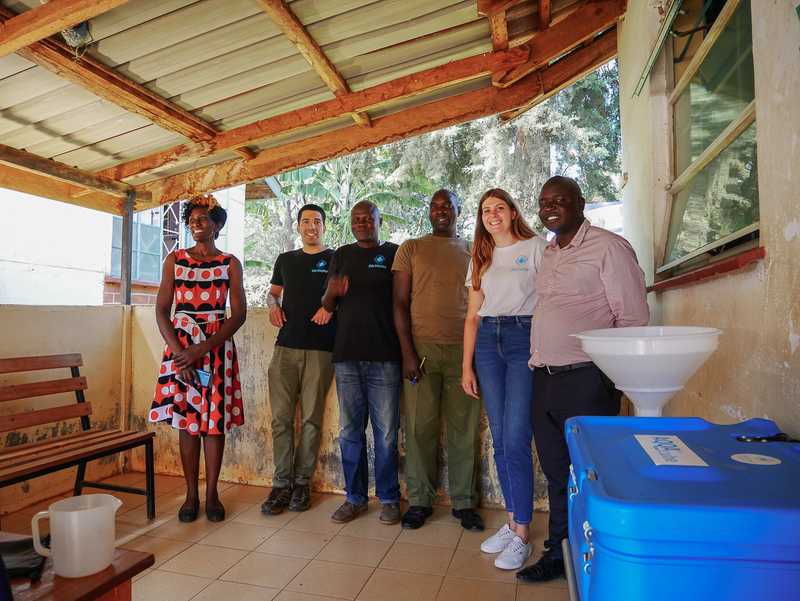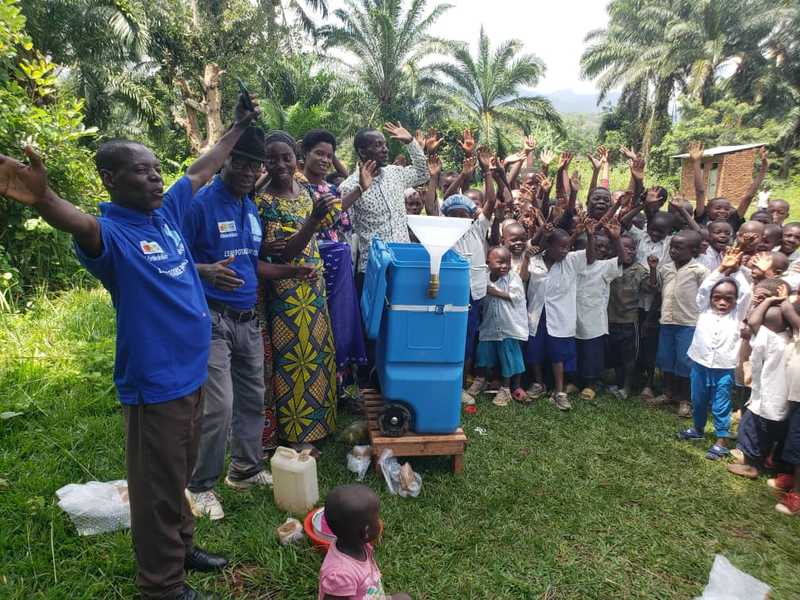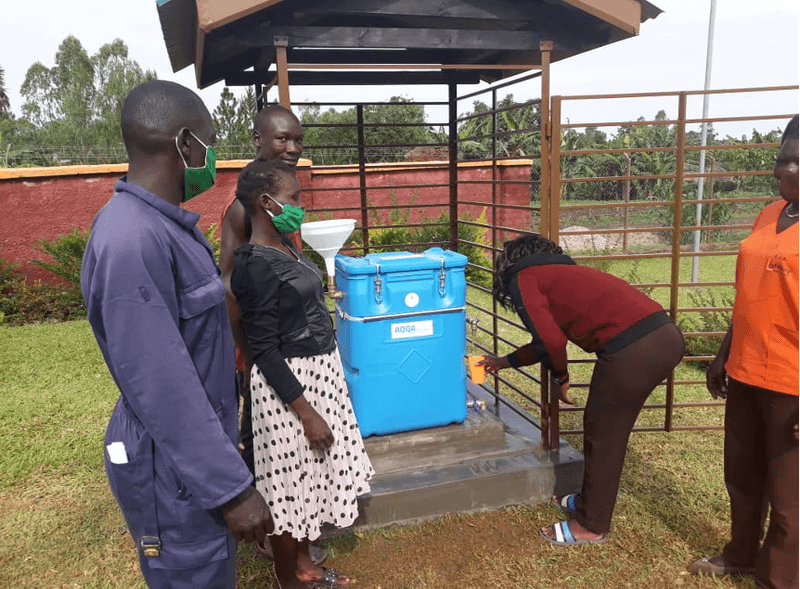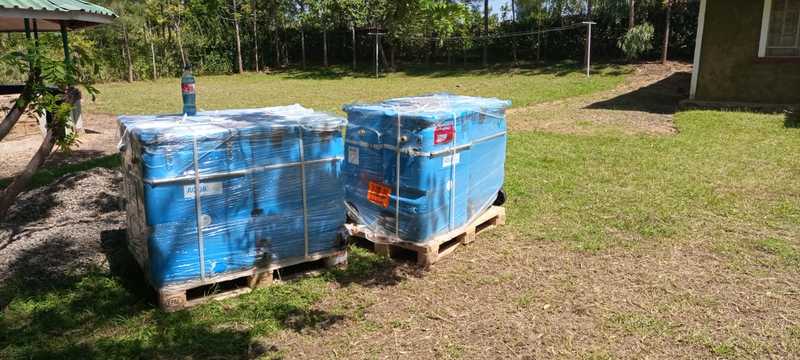In late summer 2022, two of our Berlin project staff, Josi and Joan, visited our project sites in Kenya and Uganda.
The two engineers also visited Shinyalu, a small town in Kenya. This large project with the local Health Workers is very close to our hearts, as we can support their important educational work on WASH issues with our water filters. In this post, Josi describes her impressions of how they installed the new filters in the local doctor’s office and in a hospital and gives an outlook on what’s next.
If you want to know more about the work of the Health Workers in Shinyalu, please read this in-depth blogpost by Josi. Click here for the project overview.
The installation in the doctor’s office
A filter was installed in a general practitioner’s office in Shinyalu, which is visited by more than 300 people per day. There, patients can help themselves to the treated water while waiting. The local staff told us that this is the only way for most patients to have access to clean drinking water. Our colleague Kristine Yakhama, who is a local Health Worker in the region, explained to us that even in the city with a population of 26,000, there is no real water infrastructure. Water supply can only be realized by collecting rainwater or by water deliveries. The doctor’s office is supplied twice a week and the water is then stored in a rain tank. However, it is not clear exactly where the water source is located. The staff on site told us that it is tap water. On the one hand, it can be assumed that the water quality is insufficient due to the long transport route and storage in the tank, which is why it was very important for WeWater to provide this location with water filters. On the other hand, a positive aspect is that there is no water shortage, and water deliveries are made even during the dry season.
In addition to the installation, we also conducted interviews with the locals to get more information about the situation in the Kakamega region (the county where Shinyalu is located).
Abbildung 1: Warteraum der Arztpraxis mit veraltetem Wasserfilter Abbildung 2: WeWater Team mit den Zuständigen vor Ort von links: Kristine (Health Worker), Joan und Tomkin (WeWater), Josi (WeWater), Gerard (Polizist), John (Kassierer der Praxis) Abbildung 3: Installierter AQQAcube im Warteraum
Water filter for the hospital Shinyalu Modelate Center
The hospital and the doctor’s office are both located in Shinyalu. Here as well, the water supply is only provided by collecting rainwater. Here, too, more than 300 people visit the facility per day. At the hospital, a total of three AQQAcubes have been installed and placed in the corridors to provide water to the waiting people as well as the staff. Equipping medical facilities with the water filters also has the benefit of making taking medications more effective with the help of pure water. Humphrey, the hospital’s director, believes that by treating water in the city, the number of patients visiting the facility due to waterborne illnesses could be reduced.
Abbildung 5: Gelände des Krankenhauses Abbildung 6: Zweiter Filter im Gang des Krankenhauses Abbildung 7: Installation des dritten Filters durch Joan und Mackenzie mit einem Mitarbeiter des Krankenhauses
After installation, all people involved received instruction on how to use the filters. Every 6 months, our Kenyan associates Tomkin and Mackenzie will visit the sites, maintain the filters and rectify any faults. In doing so, we are in constant exchange with the team in Kenya.
Outlook
In addition to the general medical practice, there is also a neonatal ward and a laboratory on the premises of the medical practice. The same problems exist there, which is why these wards are also to be supplied with AQQAcubes in the future.










